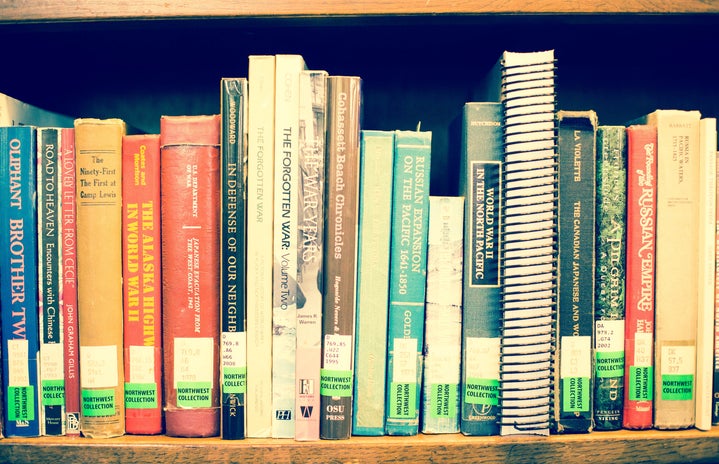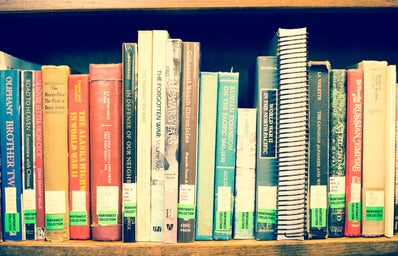For somebody in the midst of a global pandemic, I am almost disconcertingly numb. My experience hitherto could not be further from Defoe’s ‘A Journal of a Plague Year’; the only time I feel personally panicked is when tentatively manoeuvring my sanitised trolley through Morrisons, exchanging wary glances with strangers and trying to gauge the likely hygiene levels of my fellow dairy-aisle inhabitants. Balmy weather and vociferous bumblebees, cyclists and joggers weaving through sultry streets, and forced family time is nauseatingly juxtaposed with masked faces and stifling mortality rates. If you are also in the immensely privileged, healthy position of merely suffering an odd (possibly Piritize-induced) concoction of drowsiness and introverted contentment, struggling to find motivation or inspiration in these bleak circumstances, it is perhaps time to languorously turn to the pages of our literary predecessors for inspiration.

Alexander Pushkin
Pushkin is now considered Russia’s most venerated writer, despite translations of his work appearing somewhat lacklustre compared to Dostoyevsky or Tolstoy (Flaubert famously complained to Turgenev that Pushkin was “flat” — “il est plat, votre poète.”). However, it is the apparent simplicity of his work which is so much more difficult, and delicate, to translate than the obvious complexity of Dostoyevsky’s.
In the Autumn of 1830, Pushkin was confined in Boldino, south-eastern Russia, by a cholera outbreak. Desperate to return to Moscow and marry, he wrote to his fiancée: “There are five quarantine zones between here and Moscow, and I would have to spend fourteen days in each. Do the maths and imagine what a foul mood I am in.”.
In this solemnly pre-TikTok era, Pushkin allegedly had merely three books to occupy himself: a volume of Polevoy’s ‘A History of the Russian People’, a Russian translation of Homer’s ‘Iliad’, and a collection of poems by English poet Barry Cornwall. However, in three months he had produced a number of masterpieces, comprising of short plays and stories, lyric and narrative poetry, and the final two chapters of ‘Eugene Onegin’. You may be just a TikTok-addiction away from composing your very own epic, even if it is accidentally to the rhythm of ‘Interior Crocodile Alligator’.
Rapunzel
However, it was the original ‘Boss Bitch’ Rapunzel who undoubtedly made social distancing chic. At times that require us to embrace our split-ends and forgo any beauty treatments, Rapunzel’s is a strong case for appreciating au naturel body hair and any men (literally, any man at all) who stroll past our windows.
Jane Austen
Austen was a refined expert in the art of social distancing. Her 1813 novel ‘Pride and Prejudice’ ought now to be everybody’s lockdown guidebook, to be perused routinely before braving the weekly ‘big shop’. Never have Elizabeth Bennett’s frustrations with her yet un-wed and housebound family been so relatable, and never her ability to express her frustrations gracefully through sage smiles and meaningful glances more admirable.
Look feverishly to Mr Darcy for the charming combination of beautiful brooding and above par social distancing skills: if any friends invite you to dance at the local ball, simply decline and perhaps insult their appearance too, for good measure; if any marriages appear to be in bloom, take responsibility and have the groom banished to the most convenient metropolis.
Giacomo Casanova
Even ladies’ man Casanova managed to embrace intellectual pursuits in the absence of more carnal pleasures, in an effort that would have made Lana from ‘Too Hot to Handle’ proud, when stuck working for a Count in the Castle of Dux, Bohemia.
In 1785, an isolated, frustrated and bored Casanova whiled away the hours working on ‘Histoire de ma vie’, the memoirs which have made him so famous today. For him, this was “the only remedy to keep from going mad or dying of grief”. If you, too, can boast a pre-lockdown past-life of colourful exploits, or had a particularly eventful first term, there is no better time to sit and pen your memoirs (dramatically, by candle light), as there is indeed currently “[…] no pleasanter pastime than to converse with myself about my own affairs and to provide a most worthy subject for laughter to my well-bred audience”.
At a time when hourly updates on events happening in different continents bustle for attention on your phone lock screen, and every article is detailing the impending collateral damage of this financial crisis, there is a serene comfort in looking to history for assurance. We can find some relief in knowing that civilisation has not only survived such challenges before, but been enriched by it. If the characters of Boccaccio’s ‘Decameron’ can happily survive a pandemic with only story-telling for entertainment, I can survive re-watching ‘Sex and the City’ and re-attempting to finish (the first half of) ‘War and Peace’.




